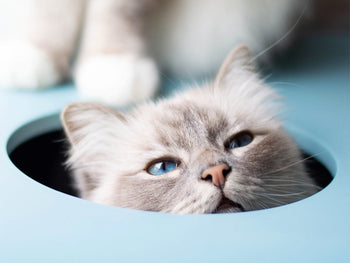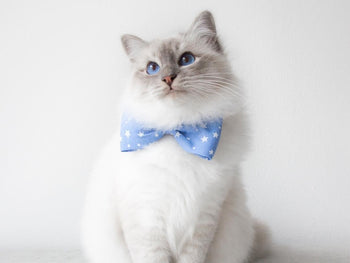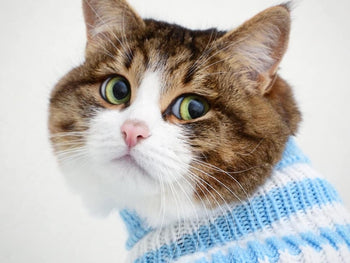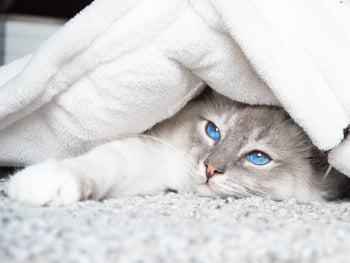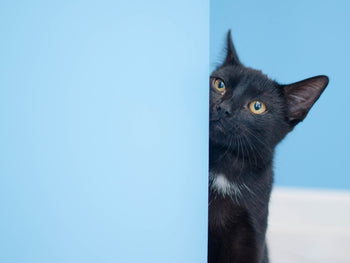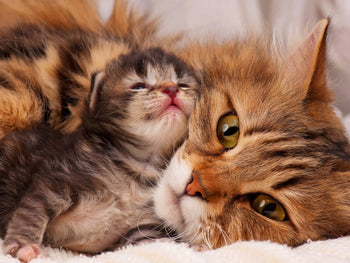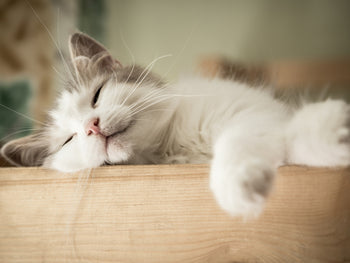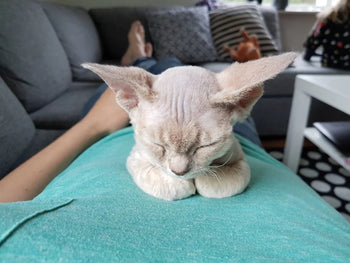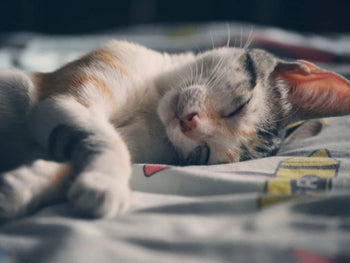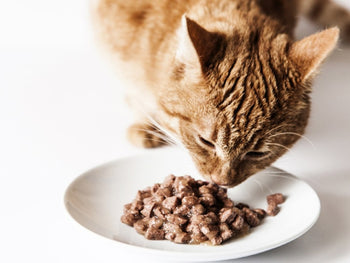"Can I leave wet cat food out overnight?" pet owners often wonder. If you have the same concern, this article got something for you.

Many people are willing to invest time and effort to cook delicious meals for their adorable cats but others have to settle for cat food. Thanks to a wide selection of foods for pets on the market nowadays, it's not difficult to acquire flavors that your fluffy friend likes. Nonetheless, cats rarely consume a full can of cat food in one go and therefore, knowing how long you could leave canned cat food out in the open is essential. "Can I leave wet cat food out overnight?" a lot of pet owners asked themselves.
Searching around for a sensible answer to the question above? If that is so, you come to the right place. This article shall show you virtually everything you need to know about cat food when it comes to exposure to air and long term storage. Generally speaking, no one wants to throw away uneaten portions of cat food as the cans are not exactly cheap. However, pet owners surely don't like to see their cat munch on spoiled foods and experience stomach upsets either. Check out the following information and make the right decision.
Wet Cat Foods: Brief Overviews

Before we actually get to the question of "Can I leave wet cat food out overnight", it's a good idea to talk a bit about wet cat foods first.
As the name suggests, wet cat foods have plenty of moisture and as a result, most cats shall consume such foods with relative ease. Experts tend to recommend that people think about giving pets that have digestive troubles a wet food diet so the pet could obtain the necessary nutrients. However, compared to dry cat foods, wet cat foods give the owners bigger messes if the pets decide to scatter the foods around the house. In addition to that, in terms of the average shelf life, dry cat foods are superior to wet cat foods.
Normally, unopened cans of wet cat food should remain reasonably fresh for years if you know how to store them. Of course, all modern-day canned foods available for purchase come with a label consist the manufacture and expiration date. In case you want to play it safe, follow the date label and ditch the can if the expiration date is around the corner. That being said, a couple of researchers claim that it's safer to give your pet expired canned foods assuming that you keep the cans in a cool, dark place.
So what happens after you open a can of wet food and leave it out? Well, once you remove the can lid, you are going to expose its content to airs as well as bacteria. Considering the fact that microorganisms like humidity and warm temperatures, they would have no problem thriving in wet cat foods. Because of that, wet cat foods go bad rather quickly if you fail to keep them in sealed, airtight containers. Since foods obviously cost money, the more spoiled wet cat foods you throw away, the more money you need to spend on buying additional cans.
Check us out for further detailed cat's health guide!
How Long Wet Cat Foods Stay Good In The Open
:max_bytes(150000):strip_icc()/side-view-of-cat-eating-food-on-floor-606757839-57d971ec5f9b584c16a47650.jpg)
There is no such thing as a straight, unchanged period to but people have indeed put forward several time estimates. On average, in a warm summer day, wet cat foods would be contaminated after you leave them out for 20 – 30 minutes. In wintertime, the foods might remain fresh for a wee bit longer if you don't turn on the heater. So the best answer available to the question of "Can I leave wet cat food out overnight" is "No, you cannot if you truly care about the health your pet".
Important Note: It's true that certain cats out there could eat left overnight foods without running into significant troubles. However, it's worth noting that different cats have different biology and that is why it's unwise to expose your pet to unnecessary risks. Household cats that take in spoiled foods by mistake might end up bloated and that occasionally leads to fatal consequences. Therefore, it's widely advised that pet owners refrain from feeding their pet any foodstuff that seems to be contaminated.
Storing Wet Cat Foods: Tips And Tricks For Novice Owners

At this point, you already know everything about "Can I leave wet cat food out overnight" so let's take a look at preservation methods.
-
Take Advantage Of Your Refrigerator
Besides human hoods, your good old fridge is able to accommodate wet cat foods as well if you plan ahead. Split the contents of a can of cat food into meal-sized portions, put them into suitable containers and toss the containers into the refrigerator. Once your pet comes to you for food, simply get one of the food containers, let the contents thaw and give your cat the meal it expects.
-
No Garage, Shed And Alike
While canned foods could stay good for a long period of time, you must not keep them in hot environments. Garage, shed and similar places could produce temperatures as high as 100 degrees Fahrenheit (37.7 degrees Celsius). Extensive heat exposure would steadily degrade the canned foods and make them unsafe for consumption.
-
Firmly Secure The Canned Foods
All it takes is a minor hole for bacteria to infiltrate and make the contents of a cat food can a breeding ground for microorganisms. Because of that, avoid buying dented cans and always remember to secure the cans so they don't get damaged.
Frequently Asked Questions And Answers About Canned Foods For Cats.
- Plastic and metal, which one is the ideal material for food container?
Studies show that certain types of plastic containers have negative impacts on the tastes, odors and texture of cat foods. So it's best to stick with metal containers if you have some on hand.
- What should I do if my pet refuses to eat recently-thawed foods?
Some cats have "class' and they often give their human caretaker a hard time when it comes to daily meals. The most sensible course of action is to warm the food a bit to get a nice smell going and attract the fluffy picky eater.
- Is there a way to tell the content of a can of cat food is bad without opening the lid?
Not really. Cans of cat food are vacuumed and then sealed before leaving the factory so it's impossible to judge the state of content. Your only clue is the date label but you could rely on the condition of the can itself as well.
Looking for more interesting cat tips and facts? Visit Cattybox
